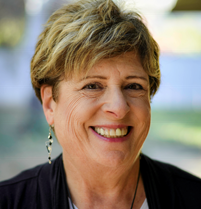Consider a Mind Development Plan
Helping Clients Create a Mind-Development Plan Can Be More Important Than Helping Them Create a Business Development Plan
Trudy Tobias
While most business professionals realize the importance of investing time, energy, and money in developing a Professional Development Plan, too few recognize that a Mind-Development Plan is actually more important to their business and their life.
As coaches we know that it’s critical for our clients to realize the importance and priority their Mindset plays in every facet of their lives. If you have a corporate client who only wants you to coach his “C-suite execs on being more productive, to help convince the powers that be, let them know how many of their employees you have coached regarding their professional situations only to have to deal with how they think and what they believe first?”
Consequently, it is our job to help our clients realize that they and their employees can only grow professionally as fast as they can grow themselves. Unless they are ready to go to the next level as individuals, they cannot go there in their jobs or businesses. The two are intricately linked.
Mind-set coaches know that changing mindset can forever change the way individuals think, feel, relate to others, and the actions they take. Similar to a hot air balloon which cannot fly while it is tethered to the ground, unless our clients have a Mind-Development Plan to change their Mindset, they are tying themselves down by situations and conditions due to their own limiting thoughts and beliefs.
“Human beings by changing the inner attitudes of their minds can change the outer aspects of their lives.” Henry James
Here’s a great illustration that brings this home:
How Can We as Coaches Help Our Clients Create a Mind-Development Plan?
The first step is educating them on how the mind, brain and behavior work together. I have always found the analogy of “our brains as computers” very helpful. Below are some teaching points:
1. Our brain is like a computer; it accepts whatever programs it has been given. The brain does not distinguish between what is true or false, or between what we want and what we don’t want. It just accepts whatever is programmed into it without judgment.
2. Our mind is the computer’s programmer. It is separate from the brain. In fact, we may think of it as ‘spiritual” in the sense that it is non-physical. The mind knows the difference between what we want and what we don’t want. To change our actions, we first have to use our mind to “reprogram” the brain. That is, we need to discern which programs the brain has been given that need to be changed in order to change our thoughts, beliefs, perceptions and actions.
3. To continue the computer analogy, how we feel and how we react are the printouts of the brain’s programs - the tangible results. Our results occur because of how our brains have been programmed. Therefore, if we want to have different results, we have to reprogram our brains by reprogramming our thoughts.
The formula to reprogram thoughts:
A. Become aware of what you have been thinking.
B. Notice the words that you use when you talk to yourself.
C. Observe how those words make you feel emotionally and in your body. Do you feel uplifted, empowered and expansive, or do you feel down, lifeless, contracted?
Here’s a great exercise you can give your clients to help them reprogram their brains. Have them write out the answers to these questions:
1. What is the situation/circumstance/interaction/event? (factually and objectively without judgment or commentary)
2. How am I feeling emotionally?
3. What was/am I saying/thinking to myself?
4. How am I feeling physically?
5. How am I acting, behaving as a result?
6. Is this how I want to see myself? Is this how I want to be going forward?
If the answer to the last question is “No,” teach clients empowering positive statements, also known as affirmations.
In a subsequent TCC blog, I’ll explain the value of Positive Affirmations, the formula to create them to be the most effective, and an exercise to teach clients how to use them.
Trudy is a life strategist, reinvention coach, author, and founder of The Truest Method where she helps women break free from feeling stuck and afraid to they can become their truest selves. Reach out to Trudy on her at truestcoaching.com, email her at Trudy@truestcoaching.com, or call her at 336-763-4611.



